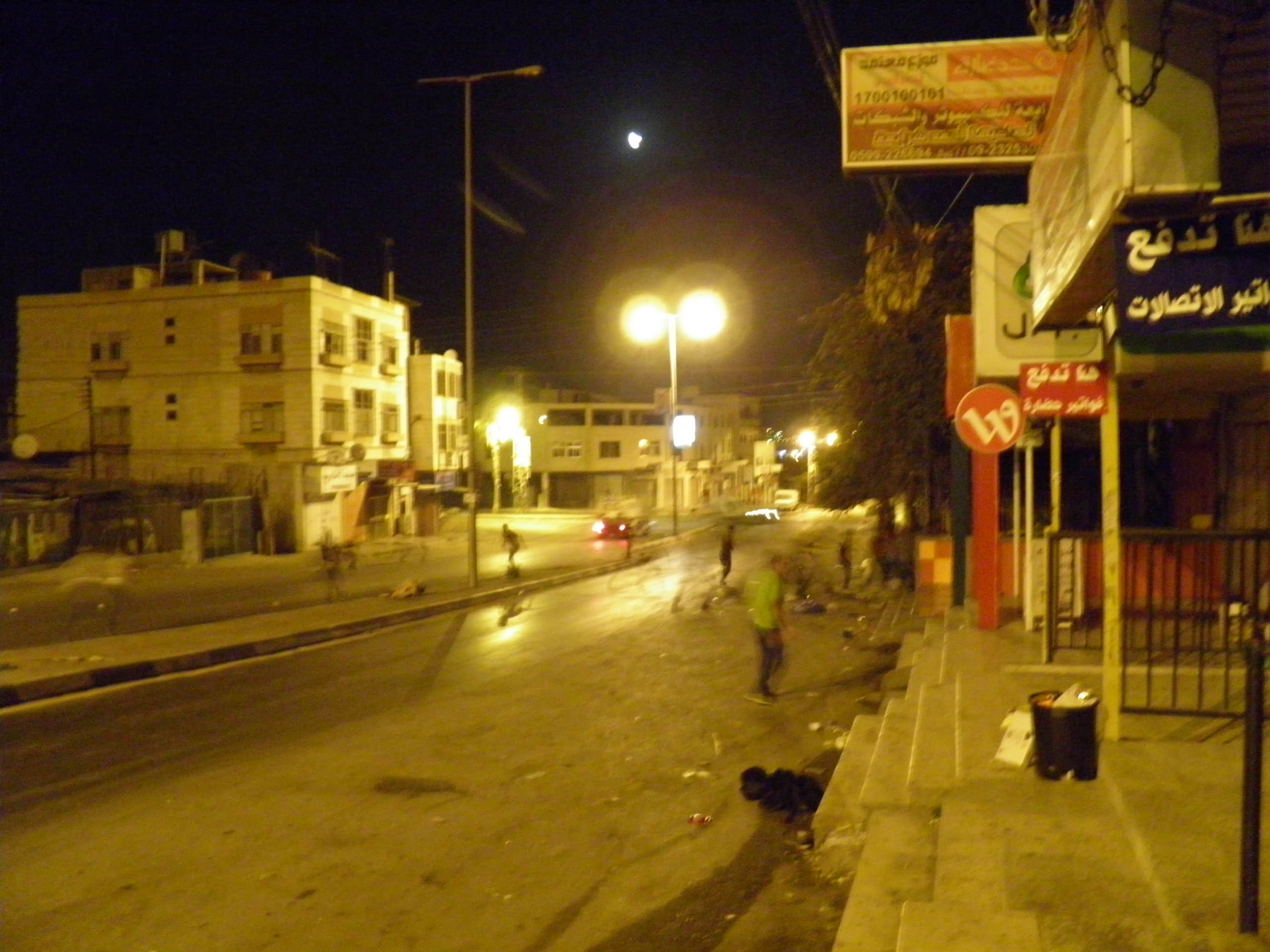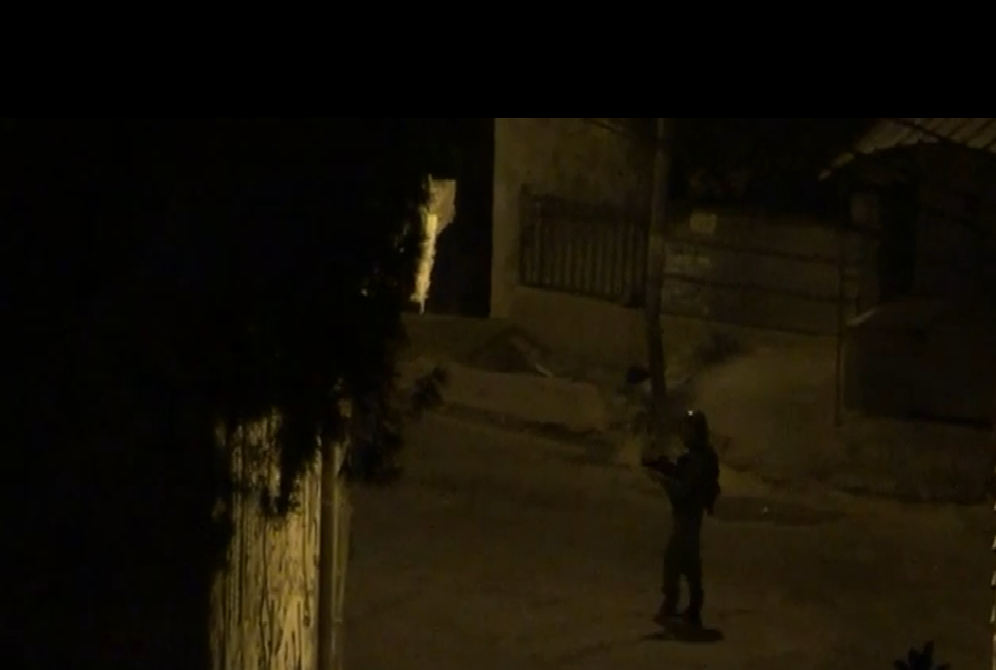Tag: Balata Refugee Camp
-
Israeli settlers and soldiers invade Balata refugee camp
20th September 2013 | International Solidarity Movement, Nablus team | Occupied Palestine On the 17th of September, under heavy Israeli army protection, Israeli settlers from nearby illegal settlements entered Nablus with the aim of praying at Joseph’s tomb in Balata refugee camp. Just after midnight, the Israeli army closed the district that surrounds the monument, blocking all the…
-
A story from Balata refugee camp
22nd July 2014 | International Solidarity Movement, Nablus team | Balata, Occupied Palestine The Abu Leel family are refugees, who fled from Haifa to Balata refugee camp in Nablus in 1948. Asma Alshmeer gave birth to 10 healthy children, five of whom have been killed by the Israeli military. The first was killed when he…
-
Video: Settlers and soldiers storm Joseph’s tomb in Balata
21th August 2013 | International Solidarity Movement, Nablus Team | Balata Refugee Camp, Occupied Palestine Last night, hundreds of settlers accompanied by Israeli forces invaded Balata refugee camp in Nablus to pray at Joseph’s Tomb. Israeli soldiers shot tear gas canisters and sound bombs at residents who protested the incursion – three youths were reportedly…



